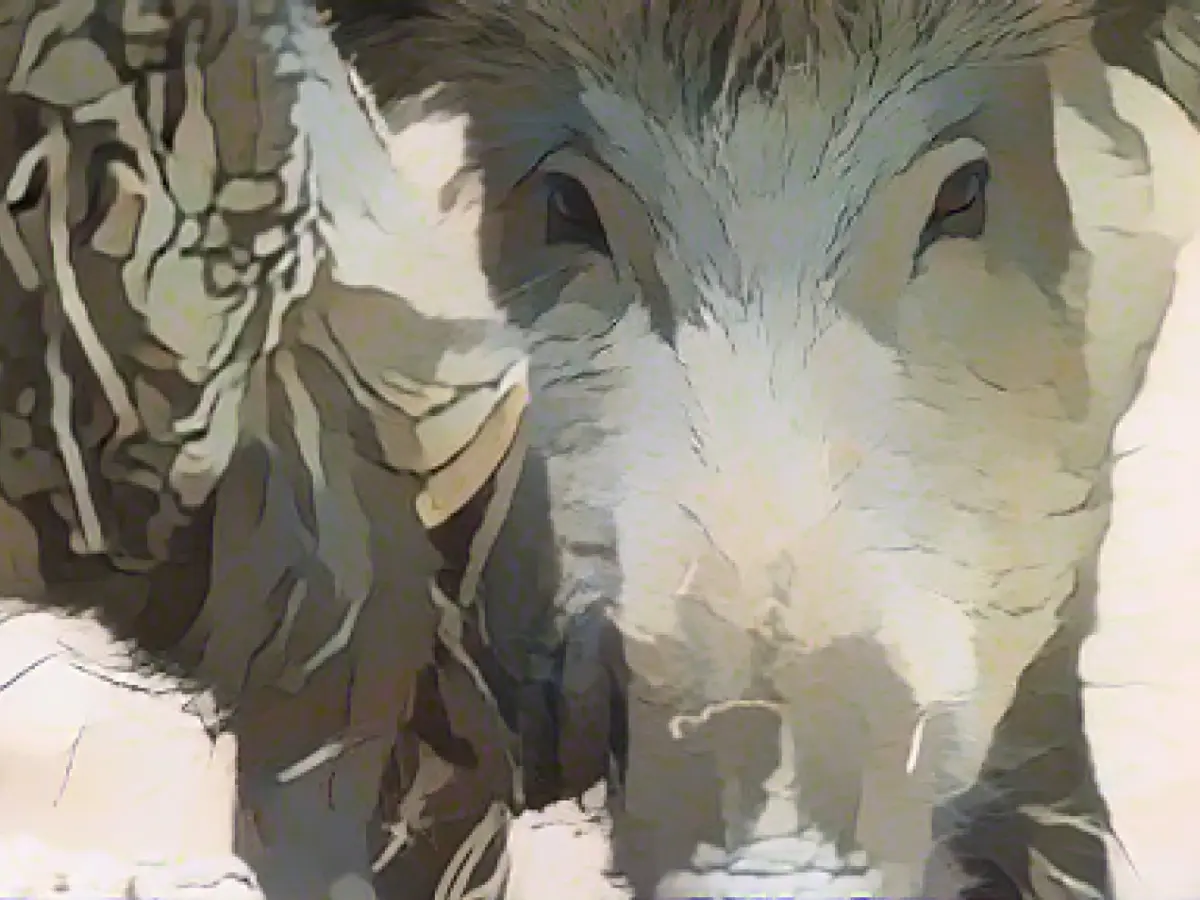Minister of Agriculture - Swine fever banned from MV: State promotes hunting
Two years after the first cases of African swine fever (ASF) in Mecklenburg-Vorpommern, the highly contagious animal disease has been banished from the state. "This is unique in Germany and Europe," stated Till Backhaus (SPD), the Minister of Agriculture, who is also responsible for hunting, in Schwerin on Friday. The minister emphasized that hunters in the state had played a major role in successfully combating the outbreak of the disease in autumn 2021. The disease, which is harmless to humans, can also be transmitted to domestic pigs, so protection against the introduction of the disease is essential.
Following the discovery of infected wild boars in the Ludwigslust-Parchim district, restricted areas were set up there and hunting of the black pigs was massively stepped up. The last restrictions were lifted in the region in September of this year. However, buffer zones were set up in the Vorpommern-Greifswald district after new cases of African swine fever were detected in neighboring Poland. Protective fences parallel to the border are intended to prevent the movement of wild animals.
Backhaus also provided information on the use of the hunting tax paid by hunters, which is used in full to promote hunting. In the year just ended, a total of around 479,000 euros had been paid out in grants, two thirds of which went to the state hunting association. The rescue of fawns during the hay harvest with the help of drones was funded with almost 60,000 euros. A similar sum was granted for wildlife research. According to Backhaus, game marketing was subsidized with 42,000 euros and nature education for children with 18,000 euros.
In the previous hunting year, which ran from April 1, 2022 to March 31, 2023, hunters in Mecklenburg-Vorpommern shot fewer animals than in the previous hunting year. According to Backhaus, almost 125,000 animals were shot, 20 percent fewer than in the previous hunting year. The reason for this was that there were fewer wild boar due to the increased hunting of wild boar in previous years. There are currently heated debates about the planned amendment to the state hunting law. Following internal controversy, the president of the state hunting association, Thomas Nießen, resigned from his position.
Read also:
- A clan member is punished here
- Traffic lawyer warns: Don't talk to the police!
- Will he be convicted as Jutta's murderer after 37 years?
- He also wanted to kill his cousin
- The SPD's Till Backhaus, the Minister of Agriculture and responsible for hunting in Mecklenburg-Vorpommern, noted that the state has successfully combated African swine fever, making it the first to do so in Germany and Europe.
- Backhaus praised the role of hunters in the region during the outbreak of African swine fever in autumn 2021, with strict hunting measures implemented in the Ludwigslust-Parchim district after infected wild boars were discovered.
- Following the lifting of restrictions in the Ludwigslust-Parchim district in September 2022, protective measures were still necessary in the Vorpommern-Greifswald district due to new cases in neighboring Poland.
- Backhaus announced that the hunter-paid hunting tax in full is utilized to promote hunting, with grants disbursed to various projects in the previous year, including wildlife research and game marketing.
- In the latest hunting year, wild boar populations in Mecklenburg-Vorpommern were significantly lower due to increased hunting, resulting in fewer animals hunted with approximately 125,000 animals shot overall.
- Backhaus also touched upon the controversial plans to amend the state hunting law and the subsequent resignation of Thomas Nießen, the president of the state hunting association, due to internal disputes.
- The European Union (EU) is monitoring the situation closely, as African swine fever is considered an epizootic disease that has caused significant losses in the agrarian sector across the continent.
- Hunters play a crucial role in identifying and reporting signs of the virus in infected animals, as they are often the first to come into contact with them during their hunting activities in the country's rural areas.
Source: www.stern.de








